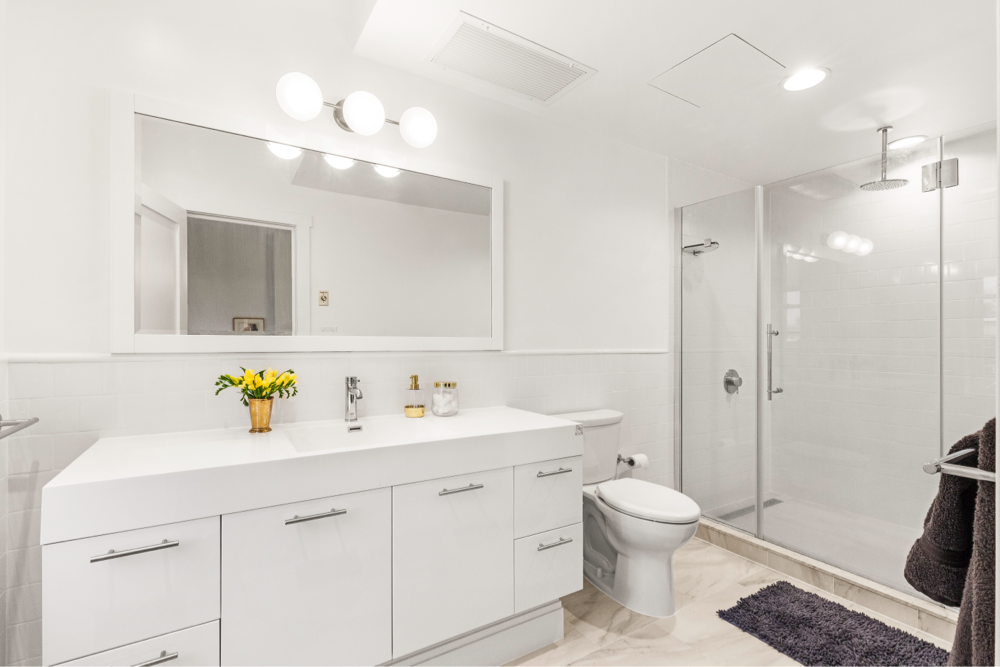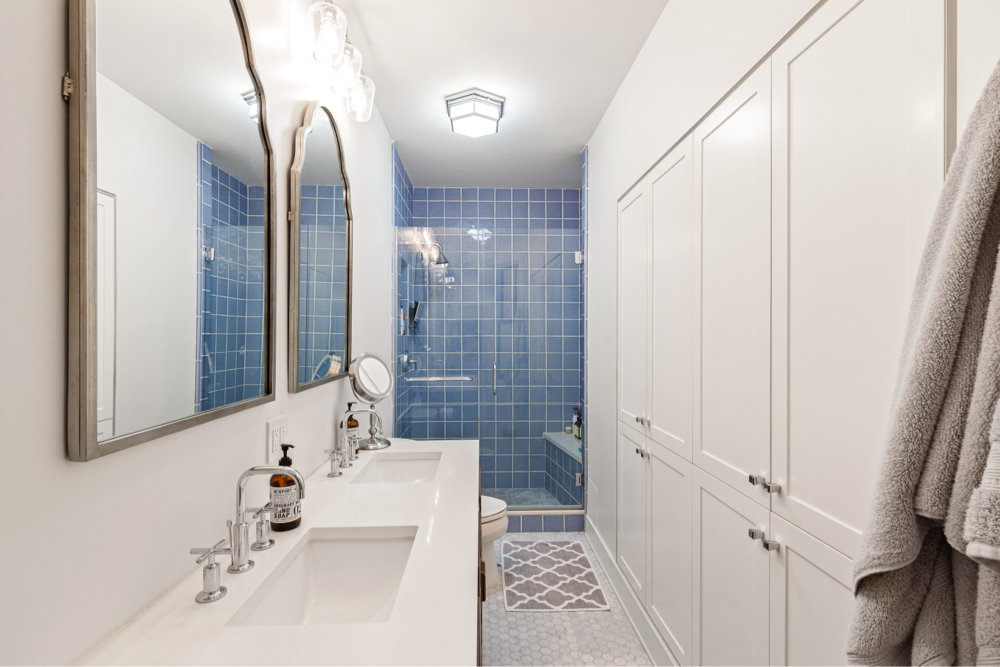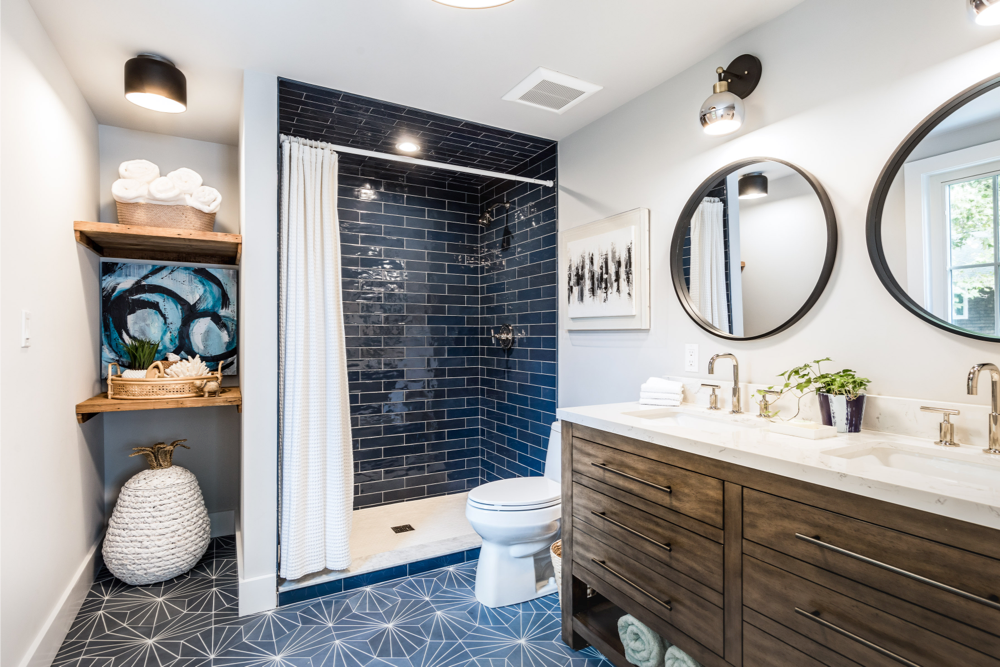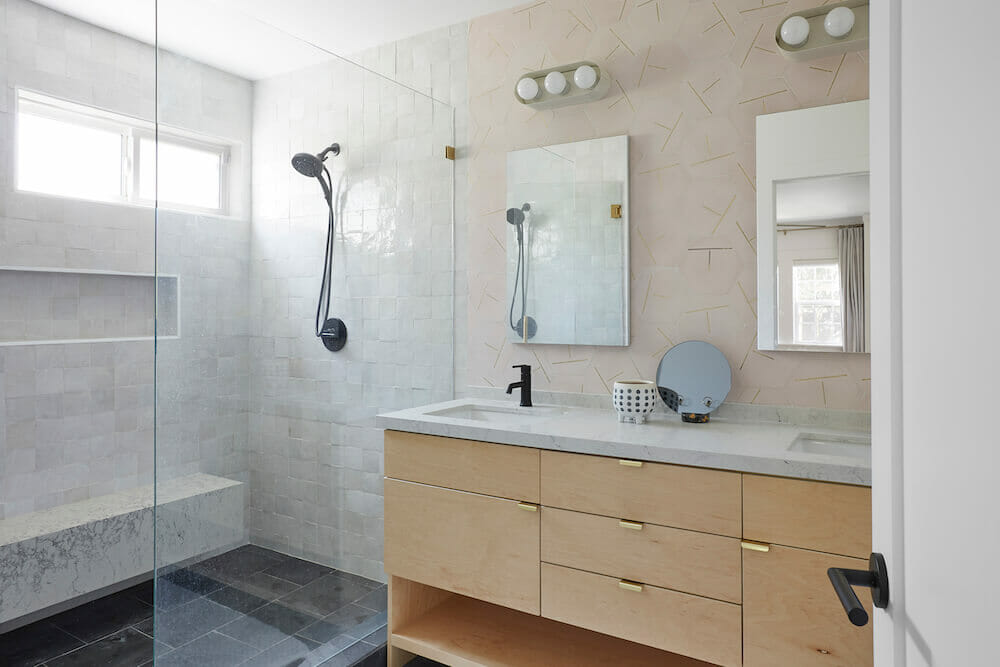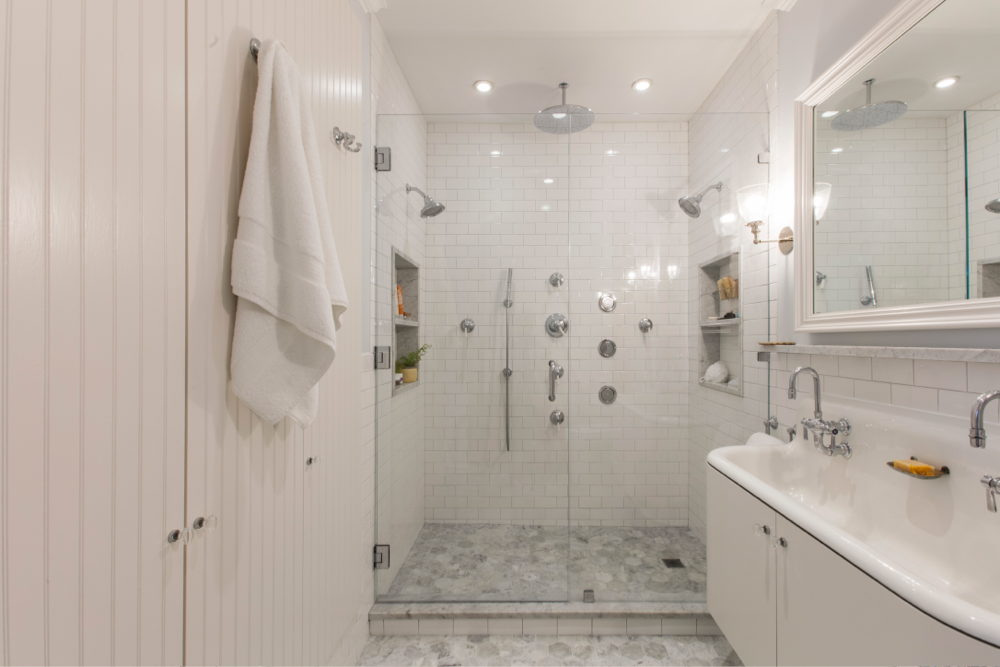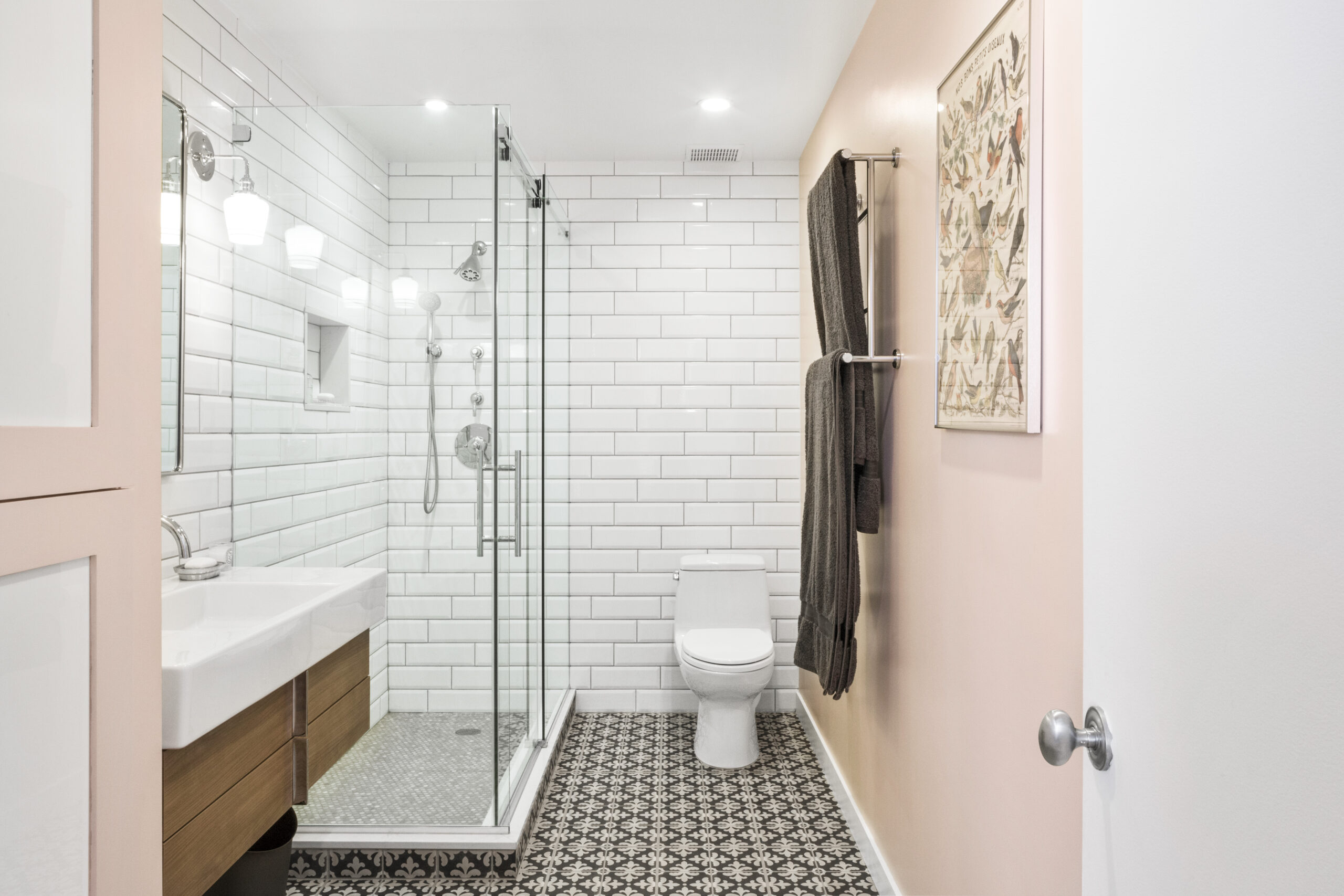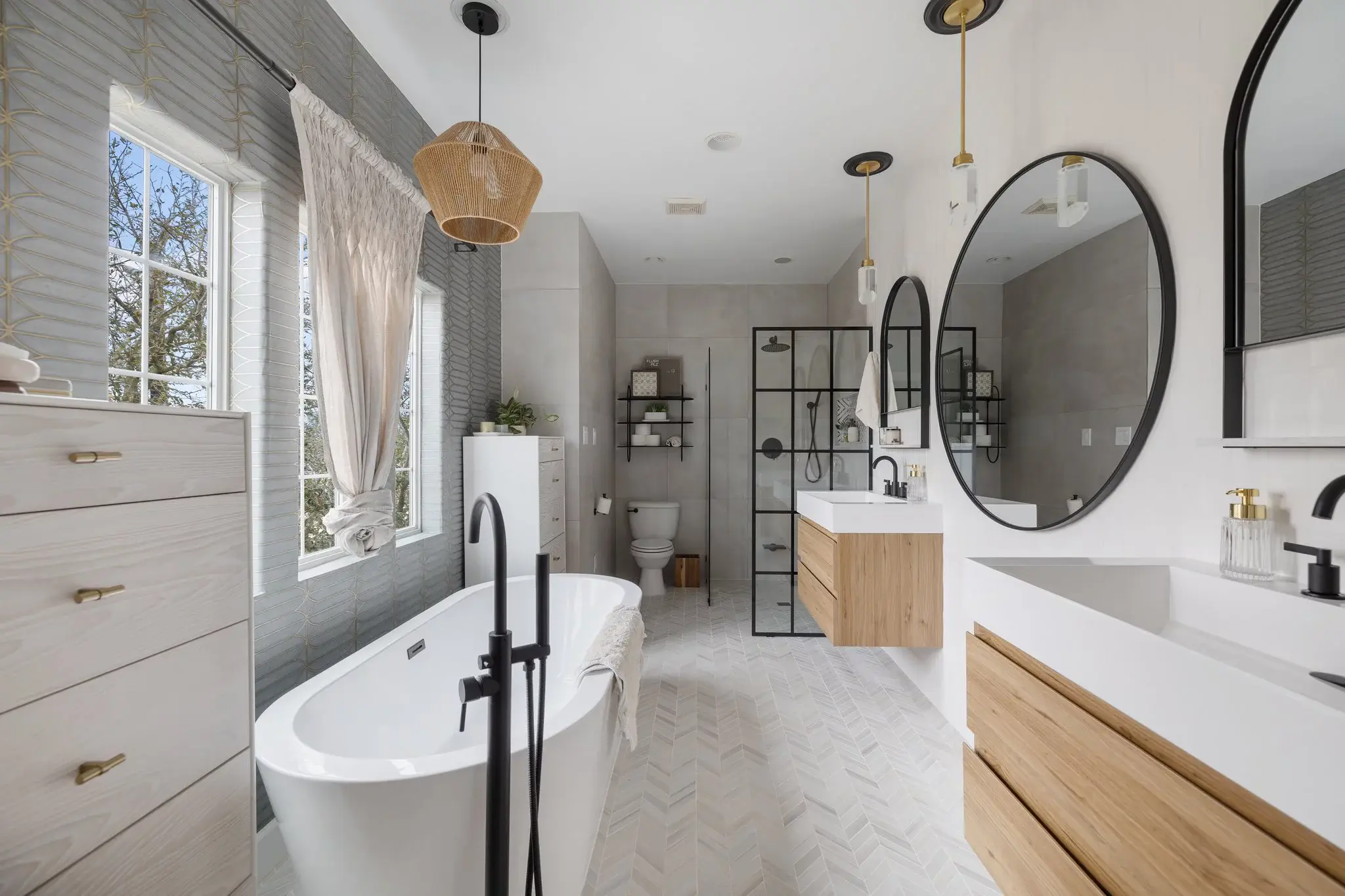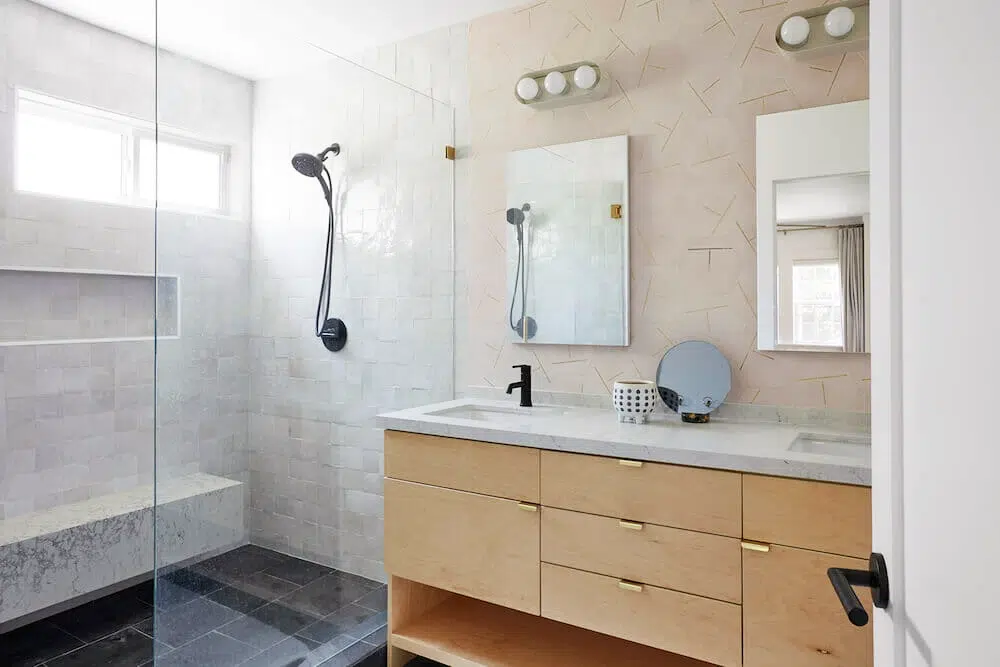Home / Blog / Home Renovation Cost Guides
Your Guide to Bathroom Remodeling Costs in Boston
Dreaming of a spa-like oasis in your Boston home? Transforming your bathroom can be a game-changer, but costs can vary widely. Let’s dive into the world of Boston bathroom remodeling costs, from budget-friendly updates to high-end luxury retreats. We’ll break down average prices, factors affecting costs, and tips to maximize your budget without sacrificing style.
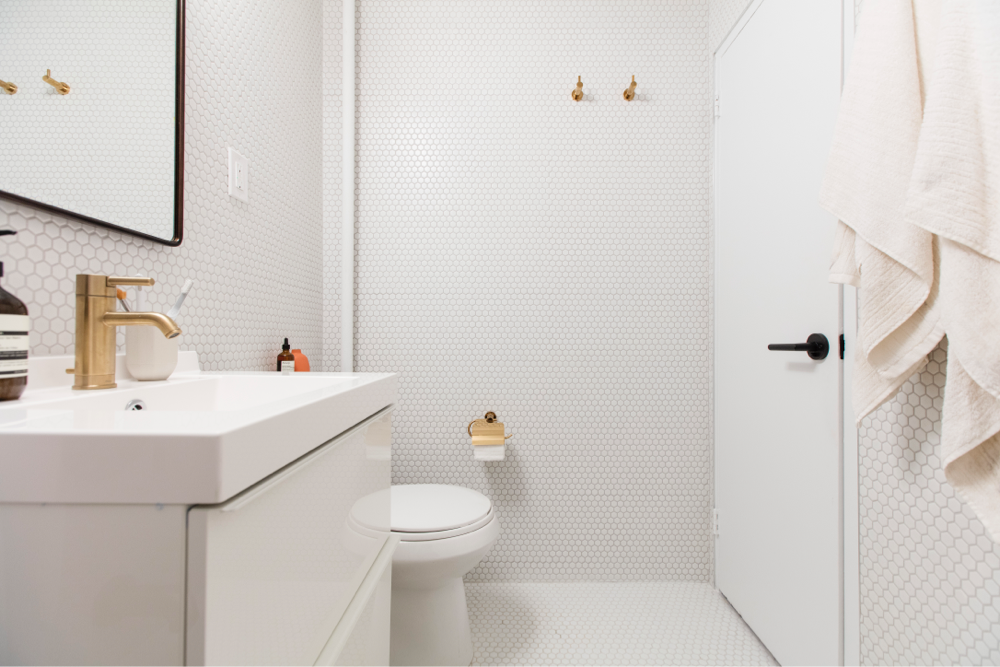
How Much Will Your Boston Bathroom Remodel Cost?
Predicting the exact cost of a bathroom remodel in Boston can be tricky, but understanding the key factors can help you create a realistic budget. Here’s a breakdown of the main variables affecting the price:
- Size of your bathroom, typically determined by the number of bathroom fixtures and the room’s square footage.
- Finish level — from budget to luxury, of all the materials, fixtures and finishes for your renovation.
- Scope — Are you just replacing fixtures and finishes? Are you changing the floor plan, including moving walls and utilities? Are you adding a new bathroom, or moving your bathroom to a different part of the house?
- Services — Do you just need construction work? Do you need professional design or architecture services?
We’ll discuss these variables below, but for now let’s start with an example.
For a full renovation (without layout changes) of a standard full bathroom, with basic general contracting services, here’s what you can expect starting costs for your project to look like in Boston:
- Budget full bathroom renovation costs: Starting at $17,500
- Mid-grade full bathroom renovation costs: Starting at $27,500
- High-end full bathroom renovation costs: Starting at $39,500
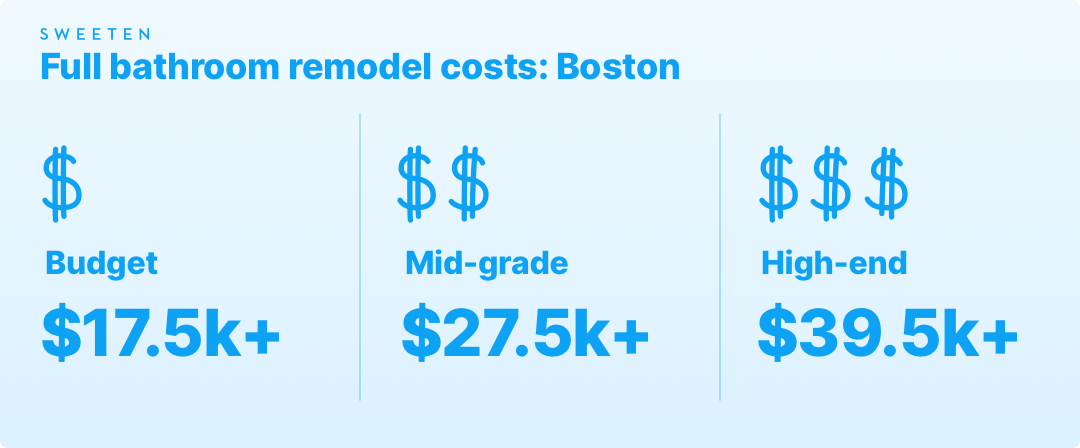
We want you to be completely prepared for the cost of your home remodeling project, so our pricing estimates are inclusive of all materials, labor, overhead, and a standard general contractor’s margin.
When you’re ready to get started on your bathroom or home remodel, work with Sweeten to renovate with the best contractors in Boston.
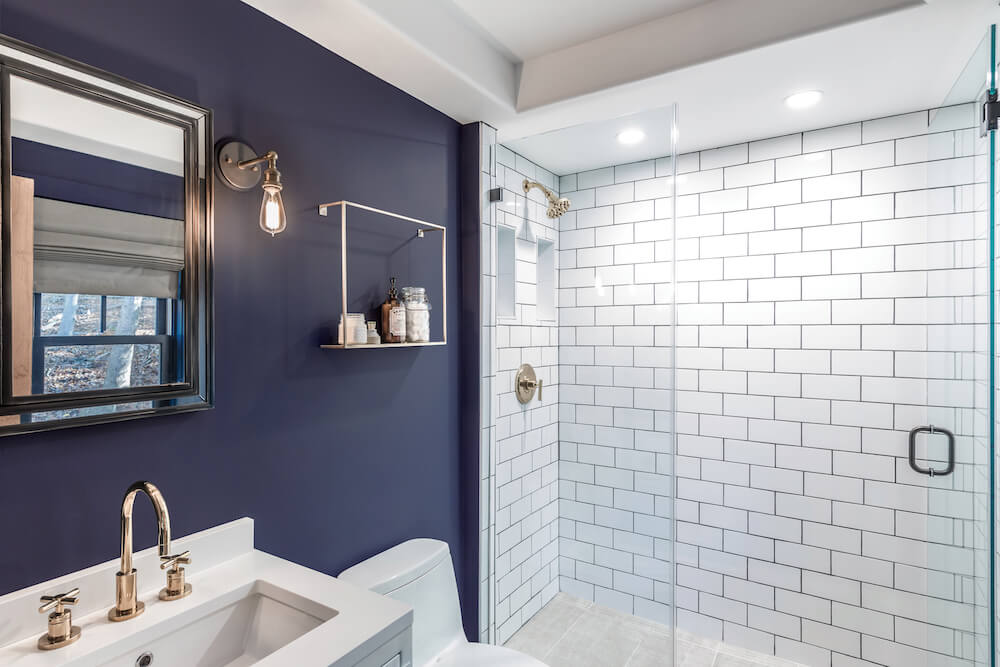
Size: How dimensions affect your bathroom remodeling costs in Boston
Bathroom size isn’t the sole determinant of remodel cost. While larger bathrooms typically demand higher budgets, the real expense lies in the fixtures and finishes. Multiple sinks, showers, and toilets, along with high-end materials, can significantly inflate the price tag even for a small space. To accurately estimate your project, focus on the specific elements you desire, such as the number of plumbing fixtures, desired materials, and overall scope of the renovation.
- Half bathrooms, or powder rooms, usually have just a sink and a toilet. The typical fixture count for a half bath is 1-2.
- Full bathrooms usually have a sink, toilet, and bathtub or shower. The typical fixture count for a full bath is 3-4.
- Primary bathrooms, also called master bathrooms, usually have a generous vanity area with two sinks, plus a toilet and bathtub or shower. The typical fixture count for a primary bath is 4-5.
- Deluxe primary bathrooms usually have two sinks and an extended vanity, an extra-large shower or a shower and separate bathtub, and a toilet, which may be enclosed separately. The typical fixture count for a deluxe primary bathroom is 5+.
For any size bathroom, a wide range of bathroom fixtures is available, from budget to ultra-luxury. Your style preference, budget, and the space’s size will determine the suite of fixtures needed, including a sink, vanity, faucet, toilet, shower head, bathtub, and accessories. The low end of fixtures for a small bathroom is $1,500, and fixtures can run upwards of $15,000.
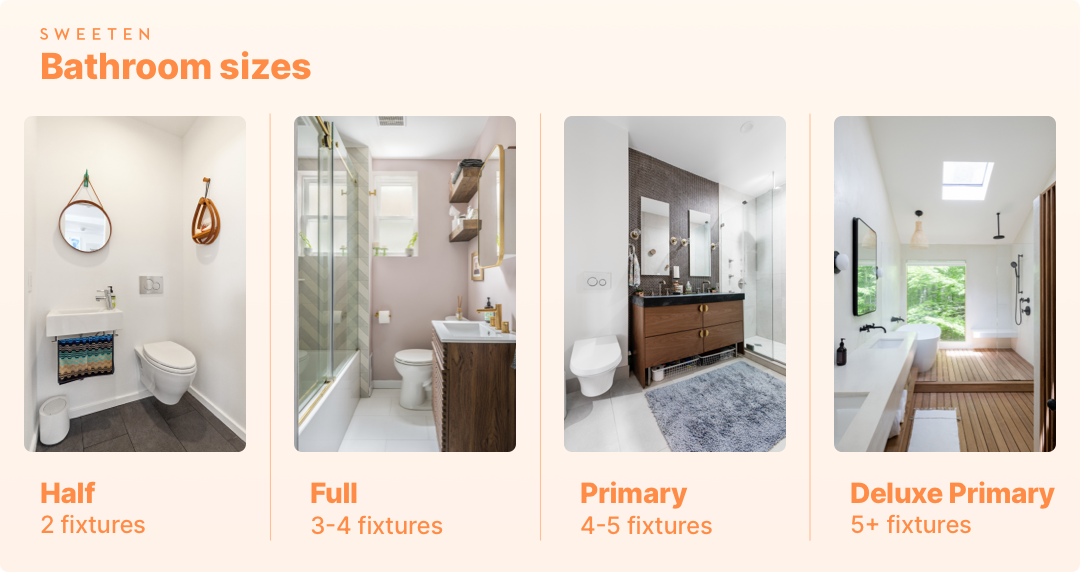
Finish level: How bathroom design affects remodeling costs in Boston
Finish level refers to the general quality and price level of fixtures, materials, and finishes. These include wall treatments, vanity materials and fabrication, flooring choices, and the brands and models of sinks, faucets, and fixtures you choose. The higher the finish level, the faster your costs will increase.
- Budget finish: Budget materials are generally off-the-shelf items from “big box” stores or IKEA. This includes stock vanities; various tiles under $5/square foot such as Pergo and Daltile; and fixtures by Delta, Moen, and Pfister.
- Mid-grade finish: Mid-grade materials balance cost efficiency with material quality. This includes vanities by Design House, Fresca, and Signature Hardware; tile by TileBar; and fixtures by American Standard, Hansgrohe, and Kohler.
- High-end finish: High-end materials take quality and craftsmanship above standard, and this category introduces custom work. This includes tiles by Clé Tile, Ann Sacks, and Artistic Tile; vanities by Duravit, Robern, and DXV; and fixtures by Kallista and Brizo.
- Luxury finish: Luxury means the sky’s the limit, where customization, craftsmanship and materials truly go above and beyond. Think brands like Lefroy Brooks, THG Paris, and Samuel Heath.
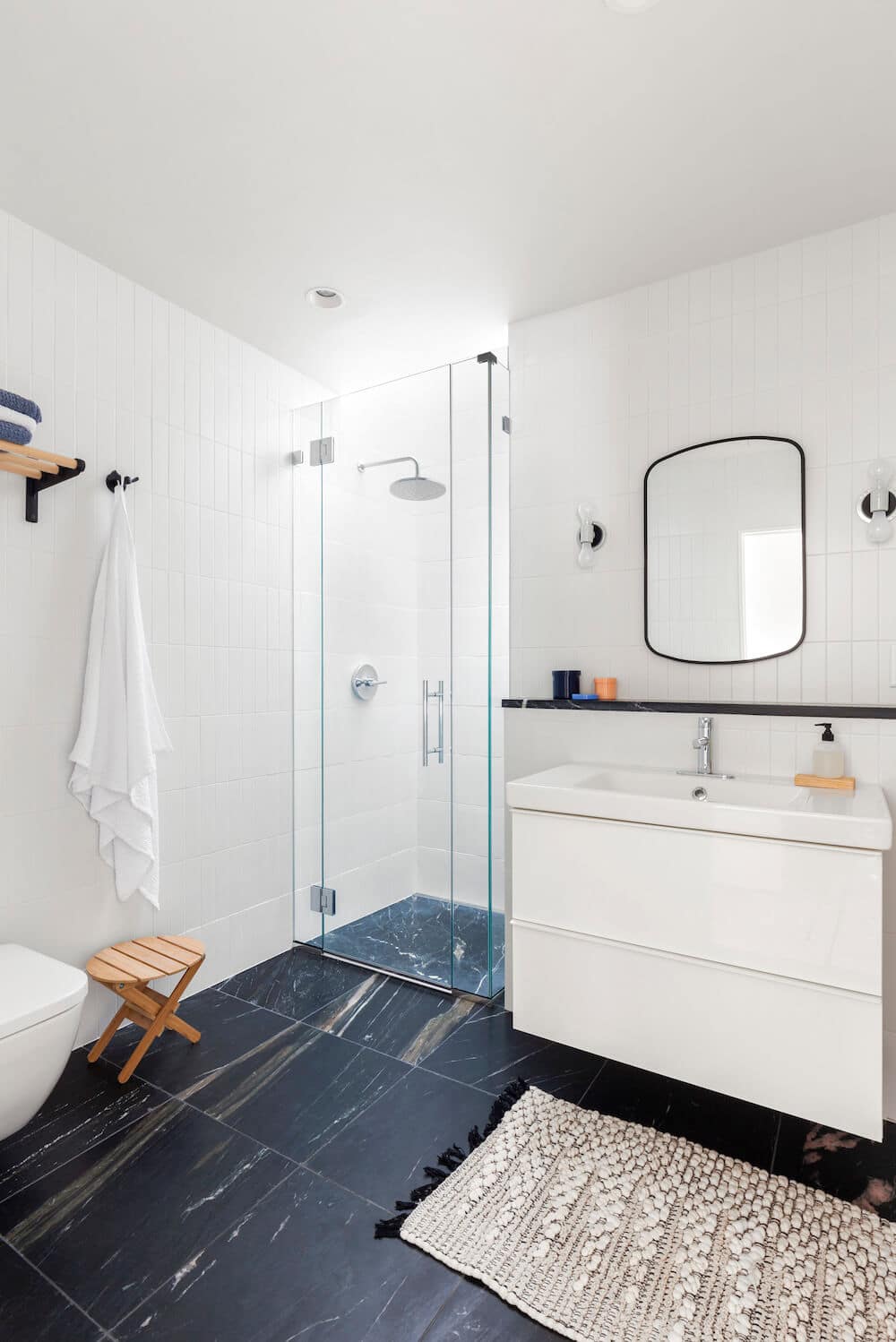
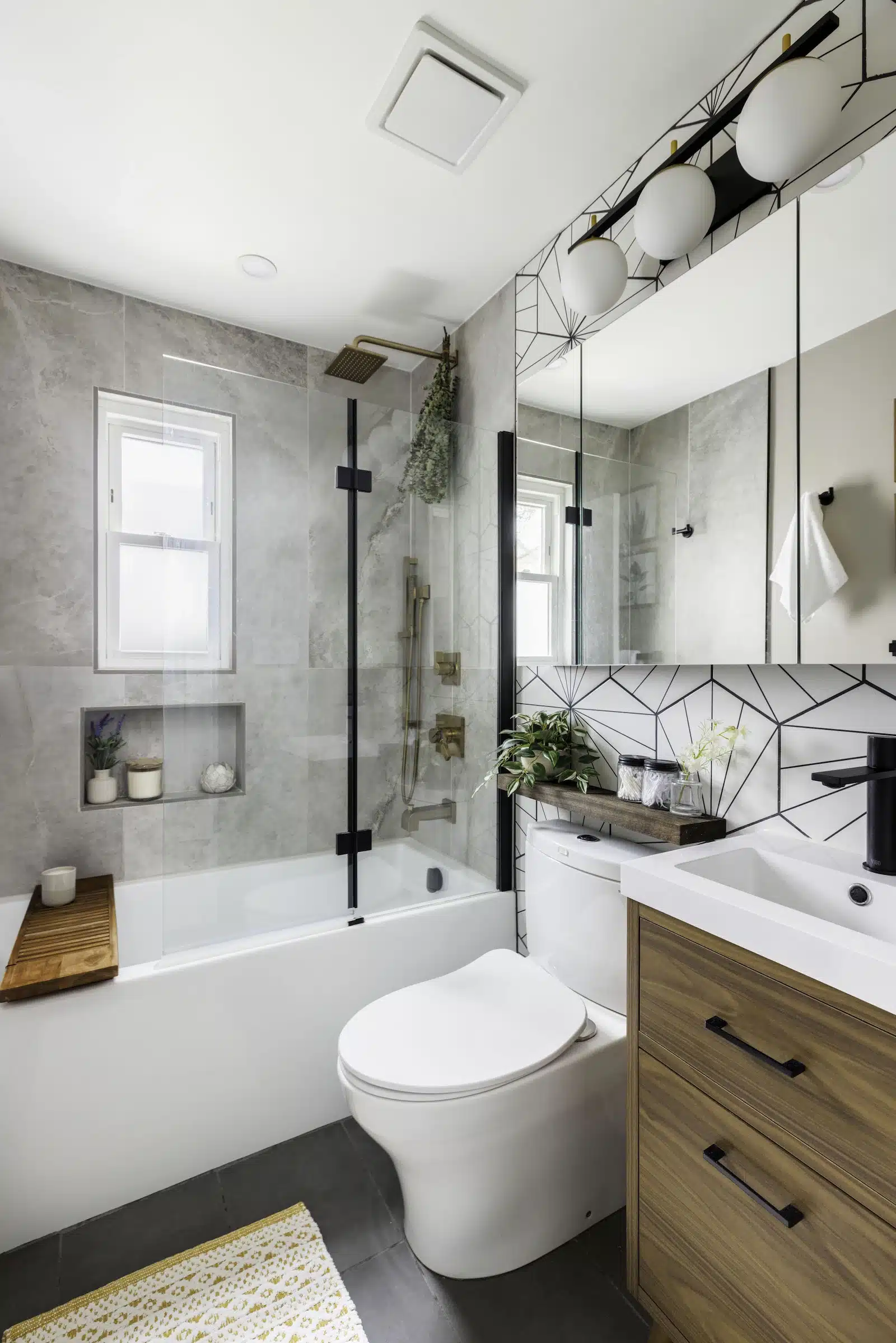
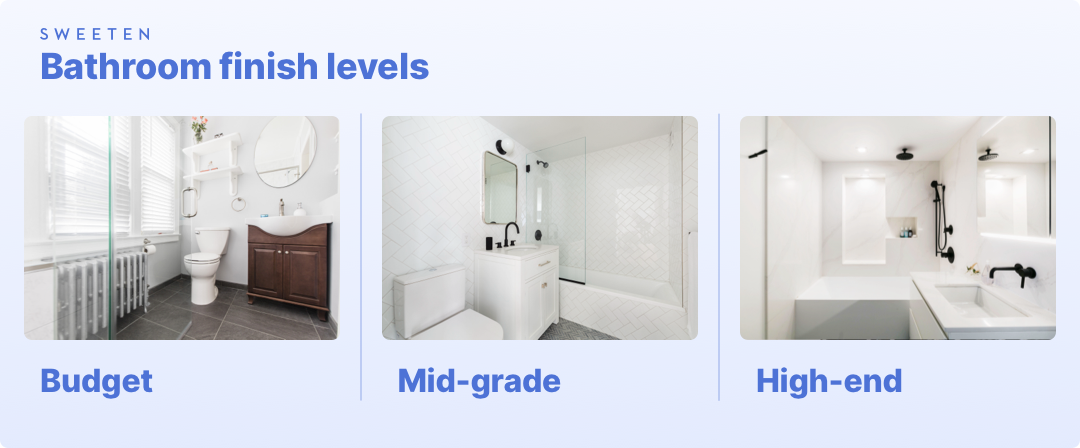
Scope: Rip-and-replace vs. gut bathroom renovation in Boston
Project scope refers to the amount and type of work that needs to be done, and can have implications on which professionals you’ll need to hire. We divide scope into the following broad categories (when a contractor prepares an estimate for your renovation, it will be much more detailed, and will include costs of the exact fixtures and finishes):
Full Renovation (also called “rip-and-replace”)
A full renovation involves replacing all existing fixtures and finishes while preserving the original layout. This straightforward approach typically requires a licensed general contractor.
Gut Renovation
A gut renovation is a more extensive overhaul, stripping the bathroom down to its studs and subfloor to completely redesign the space. This complex project demands professional design, architectural, and contracting services to ensure safety and code compliance.
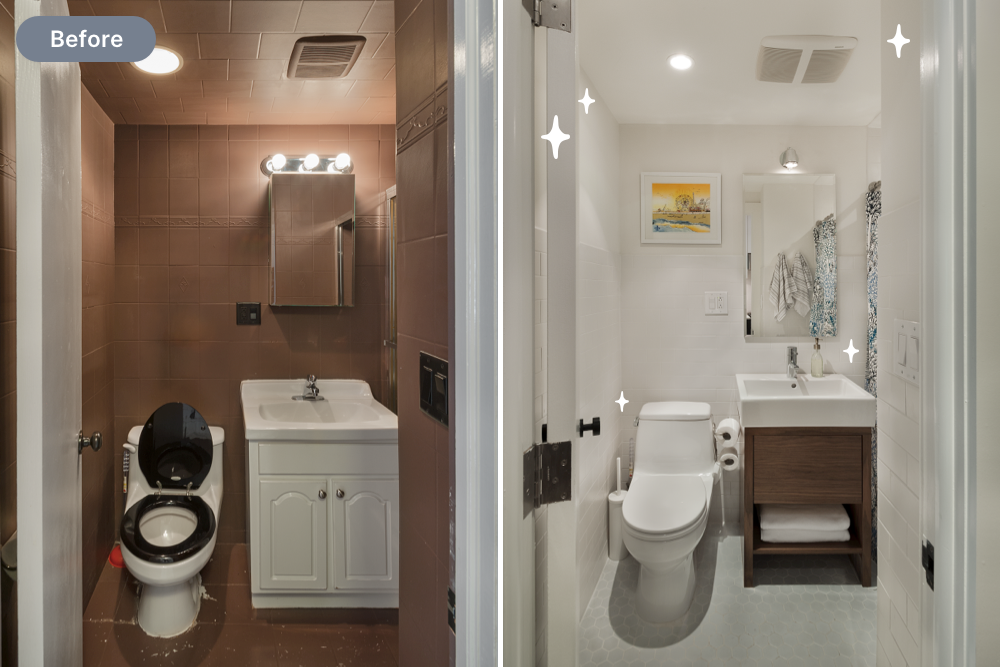
Services: Bathroom remodeling services, and how they affect costs in Boston
The two main services to consider for your bathroom renovation are build service and design service. Depending on your needs, you have some options for what types of firms to hire.
Build Service with a General Contractor
Build service encompasses demolition and construction tasks, typically handled by a general contractor. Some contractors specialize exclusively in construction (build-only firms) without offering design services. Even among build-only contractors, service levels vary. While some strictly adhere to pre-existing design plans, others collaborate with homeowners to bring their visions to life. A few may even provide creative input, suggesting materials, fixtures, or spatial layouts.
Factors like a contractor’s experience, service level, company size, and overhead influence their pricing competitiveness. To find the best fit, it’s advisable to consult multiple contractors and compare their offerings. Sweeten brings homeowners an exceptional renovation experience by personally matching trusted general contractors to your project, while offering expert guidance and support—at no cost to you. Renovate expertly with Sweeten
Design Service with an Architect or Interior Designer
Design services can be categorized into creative and technical design. Creative design, often optional, involves collaborating with an architect or interior designer to envision the space. This typically adds 10-20% to the construction budget, though fees can vary based on factors like the design package’s comprehensiveness and the firm’s billing structure (hourly rates, flat fees, or percentage-based). For example, a $40,000 bathroom renovation might incur design fees of $4,000 to $8,000.
Technical design, essential for projects like gut renovations requiring permits, is handled by an architect or structural engineer. Their primary role is ensuring safety and code compliance.
What is a Full-Service, Design-Build Firm?
For projects requiring both design and construction, homeowners can engage a separate designer or architect and a general contractor. Alternatively, a design-build firm, which combines design and construction services under one roof, offers a streamlined approach. This unified structure can expedite the process and enhance coordination, potentially contributing to cost savings.
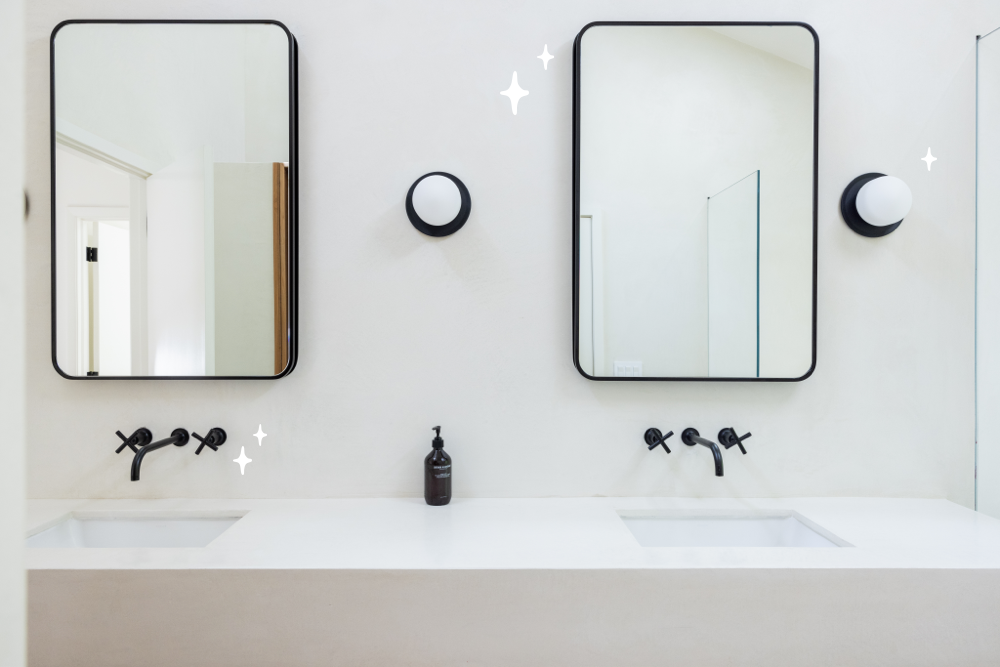
Ready To Get Started?
Post your project on Sweeten for free and make your dream bathroom in Boston a reality. Sweeten puts you in control of your renovation, from finding the perfect contractor and gathering design inspiration, to using cost guides to plan your budget wisely.
FAQs about bathroom renovation in Boston
The final cost of a bathroom remodel will depend on the size of your bathroom, the quality of fixtures and finishes, and whether any plumbing fixtures will be moving or changing. For an average full bath, a full, rip-and-replace bathroom remodel in Boston will range from $17,500 to $72,000 and up, depending on finishes. This estimate includes all materials, labor, overhead, and a standard general contractor margin.
A major gut bathroom remodel would add an additional 15-25% to the total cost of materials and labor for the same square footage. Also keep in mind that a half bathroom with fewer fixtures will cost less, while a primary bathroom with more fixtures will cost more.
Demolition signifies the start of a renovation and is one of the quickest parts of the process to complete. Bathroom demolition costs are typically tied to the square footage of what is being removed. Usually, bathroom demolition costs start at $38 per square foot in Boston, but can be more depending on what needs to be removed.
The cost of labor for a bathroom remodel goes towards the renovation crew, behind-the-scenes administrative employees, and subcontractors. Generally, the cost of labor is dependent on a project’s complexity, size, and location. In Boston, the labor portion of a bathroom remodeling project usually adds up to around 25-35% of the total project cost, give or take.
Generally speaking, labor will make up a larger portion of total cost for a bathroom project with budget-grade materials, and a lower portion of the total for high-end materials. The addition of any highly specialized labor (beyond standard) will cost more.
Permit requirements vary between states and local municipalities, so be sure to check your local requirements in Boston. Often, permits are needed for bathroom remodels if any plumbing, electrical, or mechanical elements will be moved, or if load-bearing walls are being moved or coming down. This can also include converting a tub to shower, or vice versa, due to plumbing implications.
If you need a permit for your bathroom remodel, the costs can be calculated as a flat rate for specific scopes of work or as a percentage of the cost of the project. In some areas remodeling permit costs might be as high as 10%, but it’s usually less.
The purchase of tile is only part of the budget to tile a bathroom. There is cost to prepare the space for tiling where items such as baseboards and the toilet are removed. Raw materials, such as subflooring and thin-set, are required for the job. Installation and labor costs factor into the final tiling budget. The total average cost to tile a bathroom in Boston ranges from $26 to $80 per square foot.
The cost to replace a bathroom vanity includes preparation of the worksite, raw materials, and labor. Depending on the scope of work, the cost increases if plumbing and electrical systems are relocated or if they need to be brought up to code. The materials chosen based on price point will also factor into the budget. The total average cost to replace a vanity in Boston ranges from $430 to $3,700, however, for high-end and custom work, the total cost of replacing a vanity can run even higher.
A walk-in shower can cost anywhere between $2,000-$15,000 in Boston, and can run even higher for high-end and custom work, or major layout changes. This includes installation, plumbing, fixtures, and kits. Leaving the plumbing where it is will be less expensive than if water sources are moved (like when converting a tub to a shower).
The cost to remodel a shower will also vary depending on the price point of the tile chosen. Standard ceramic tile can start at just $1.50 per square foot while marble tile is closer to $50 per square foot. Add a standard overage amount of at least 10% of raw material. Running short of tile will cause delays and incur more costs
The bulk of your bathroom remodeling costs will be tied to the total number of fixtures, and the quality of the fixtures and materials you choose. A small full bathroom with 3-4 fixtures and a large full bathroom with 3-4 fixtures, might cost close to the same because the only difference will be in square footage of flooring and wall treatments. On the other hand, a half bathroom with only 2 fixtures, a sink and toilet, will cost considerably less than a full bath renovation with 3-4 fixtures.
In Boston, the cost for a typical half bathroom remodel can range from $7,000-$26,500 and up; whereas the cost for a full, rip-and-replace remodel of a small full bathroom can range from $17,500-$72,000 and up, depending on finish level of the materials used. A major gut renovation for a bathroom of the same size would add an additional 15-25% to the total cost of materials and labor.
Your general contractor can give you an idea of possible issues that may arise during a bathroom remodel in Boston, based on the age and type of home they’re working on. However, a contractor cannot price out every possible problem, as things can arise after walls are broken into. They may discover an issue with your plumbing or electrical, for example.
Major projects often involve permitting fees, and change orders after a contract has been signed can also add to the overall cost. To protect yourself from unseen costs, set aside a 10-15% contingency budget for a non-gut renovation. If you are planning a gut remodel, set aside 15-20% for issues that come up along the way. Having a monetary cushion will keep your remodeling project on track.
